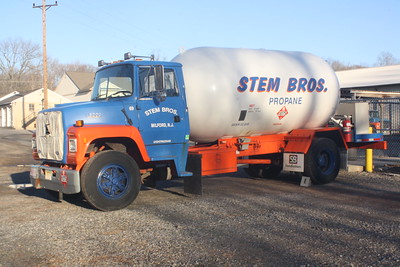
If you’re thinking about whether or not you should pre-buy propane for 2023, there are a few things you should consider. Propane prices can fluctuate a lot from year to year, so if you lock in a price now, you could end up saving a lot of money. However, you also need to make sure you have enough storage space for the propane, and that you’ll be able to use it all. Weigh your options carefully and make the decision that’s best for you.
Here are some of the things you should know when you want to pre-buy:
- there is a minimum limit, usually, the minimum limit you can buy is 200 gallons, and companies usually don’t charge for delivery.
- propane companies offer discount at 5%1-10% discount for bulk orders, customers will have to sign in limit allotment contract.
- a pre-pay program is offered by propane companies; customers can avail of the discounted price of the gas, right now, as of this writing, the price per gallon at a pre-pay price is $2.35 on average, excluding tax. Customers must buy a minimum limit to avail of the program. Availing the pre-pay program will save you money.
- The consumption of propane is at its peak during the winter months. When you consume all of your pre-buy propane, and you want a resupply, the price per gallon will return to the current market price.
Customers are encouraged pre-buy propane at the soonest and earliest time to avoid running out of supply.
There are many benefits to pre-buying propane in 2023. By doing so, you can lock in a low price for the year and avoid the price spikes that often happen during the winter. You can also save money by taking advantage of early-bird discounts and special promotions. Additionally, pre-buying propane can help you avoid the hassle of having to find a new supplier mid-way through the year.
Read related article: How to Choose a Propane Delivery Service?
Will you pre-buy for next year’s supply?
Can You Afford It Right Now?
- Think about the upfront cost. Pre-buying means paying ahead, so make sure this works for your current budget.
- Remember, the money you spend now could be used elsewhere. Are there other things you’d rather spend on?
- Weigh your potential savings. If prices might go up a lot, spending now might save you more in the long run.
Where Will You Store It?
- Check your tank. Is it big enough? Is it in good shape?
- Safety first! Make sure your storage spot is safe with good ventilation.
- Thinking about getting more storage? Look into the cost and space needed.
How Much Do You Usually Use?
- Look at your past usage. How much propane do you use in a typical month or season?
- Think about the future. Will you use more or less propane soon? Maybe you’re thinking of getting a new heater or grill.
- Always buy a bit extra. It’s better to have more than you need just in case.
Can You Trust Your Supplier?
- Do a quick online search. What are others saying about them? Good reviews are a promising sign.
- Read the fine print. Make sure their contract is clear and you’re okay with the terms.
- Good customer service is key. If they’re quick to help and answer questions, that’s a plus.
You Can Buy These From Amazon
[table id=3 /]
How much can you save per gallon in the pre-buy plan?
During summer, the Pre-Buy plan is announced by a propane company. You can pre-purchase as much gas as you need for a certain price. This option has the significant benefit that the company can assist you in pre-purchasing the appropriate amount of gas based on your prior usage. Additionally, when you make this transaction, your pricing for the gallons you bought is locked in, so you don’t have to worry about the price increase during the winter.
When availing of the pre-buy plan, you can save an average of 40-50 cents per gallon of propane during the winter months. If you want to get into this plan, contact your propane company in the soonest possible time because the pre-buy program has an end date.
Read related article: Age Limit to Buy Propane by State (How Old You Have to Be?)
How to Pre-Purchase Propane
It’s impossible to say for certain whether or not propane prices will go up in 2023. However, there are a few factors that could potentially lead to higher prices.
First, the demand for propane is expected to increase in the next few years. This is due to a growing number of households using propane for heating and other purposes.
Second, the supply of propane is not expected to keep up with this increased demand. This could lead to shortages and higher prices.
Third, the cost of crude oil, which is used to produce propane, is expected to rise in the next few years. This would likely lead to higher propane prices as well.
So, while we can’t say for sure what will happen to propane prices in 2023, there is a possibility that they could go up.
What to know about the pre-purchase agreement or contract
- If the price of propane falls below the pre-buy price, the supplier or retailer will not lower the price. The price per gallon remains as indicated in the contract.
- There is a starting and ending period from which the customer can buy at a discounted price. No extension will be given and thus no discount will be granted as well.
- Customers have options for various payment plans if they can afford to pre-pay. Talk to the retailer for more details on how to avail of the plan and payment arrangements.
- The method of delivery is automatic. It is advantageous for customers will large amount of consumption. Though, not all companies have such schemes.
- The remaining or unused supply of the gas will be rolled out to the next season if the customer chooses to continue the contract; if not, a refund can be requested and will be given.
How Do They Differ from Typical Contracts?
- Commitment to Purchase: Unlike standard contracts, where you pay for propane as you use it, pre-buy contracts require an upfront commitment for a specified amount of propane.
- Pricing Structure: Regular contracts typically have variable prices that fluctuate based on market conditions. In contrast, pre-buy contracts establish a set price or a price ceiling.
- Duration: Most pre-buy contracts are seasonal and cover the heating season, whereas regular contracts might be open-ended or for a different specified period.
Fixed and Capped Rates in Pre-Buy Agreements:
- Fixed Rate: This is a predetermined price that you agree to pay for each gallon of propane, irrespective of market fluctuations. If market prices rise above your fixed rate, you save money. However, if market prices fall below, you might end up paying more than the current rate.
- Capped Rate: This sets a maximum (or “cap”) on the price you’ll pay, but it also allows you to benefit if market prices fall below the cap. There’s more flexibility compared to a fixed rate, but there might be a premium charge for this kind of contract due to its added benefit.
Payment Terms:
- Upfront Payment: Most pre-buy agreements require consumers to pay for the propane in advance.
- Installment Plans: Some suppliers might offer payment plans, allowing consumers to spread the cost over several months.
Price Structures:
- Fixed Price: A set price per gallon, irrespective of market fluctuations.
- Capped Price: A maximum price is set, but you could pay less if market prices drop. This might come with a premium fee.
Volume Commitment:
- Minimum Purchase Requirement: Some contracts may require consumers to buy a minimum amount of propane.
- Excess Usage Charges: If you use more than the agreed amount, you might pay the market rate for the extra gallons, which could be higher.
Contract Duration:
- Pre-buy contracts typically last through the heating season, but the exact duration should be specified in the agreement.
Penalties and Fees:
- Underuse Fees: If you don’t use all the propane you pre-bought, there might be penalties.
- Cancellation Fees: Terminating the contract before its end date might incur costs.
Supplier’s Reliability:
- Research the supplier’s reputation. A low price won’t matter if the supplier fails to deliver, especially in peak demand periods.
Force Majeure Clause:
- This clause might exempt the supplier from fulfilling the contract under certain conditions, like natural disasters or supply disruptions. Understand what those conditions are.
Delivery Commitments:
- Automatic Delivery: The supplier might automatically fill your tank when it reaches a certain level.
- On-Demand Delivery: You might need to request each delivery, which requires keeping an eye on your tank’s level.
Contract Renewal and Transition:
- Automatic Renewal: Some contracts might auto-renew. Be aware of this and the terms associated with it.
- Transition to Regular Contract: If you don’t renew a pre-buy, understand the process and pricing if you transition to a regular contract.
Are propane prices expected to rise in 2023?
We don’t have a crystal ball to make a prediction if the price of propane, crude oil and other natural gas will rise in 2023. But the market indicates that the trend will continue throughout this year.
A statement has been made by the U.S. Energy Information Administration’s Short-Term Energy Outlook in June, the report shows a variety of contributing factors, including geopolitical uncertainties and tight inventories are the reasons for continuing price increases.
Another authority has made a statement on this subject – the Michigan Public Service Commission issued a notice, urging customers to purchase at the soonest possible time and to lock in supply for the upcoming season.
This is Why Propane Prices Vary So Much
Know the Market Trends Before Making a Decision
If you’re planning to buy propane in 2023, it’s important to know the current market conditions and trends.
Buying early can help you lock in a lower price and avoid any potential price hikes. The first thing to keep in mind is that propane prices are cyclical. Prices tend to be lowest in the winter and highest in the summer.
By buying early, you can take advantage of the low prices during the winter months. Another thing to consider is that propane prices have been on the rise in recent years. Inflation and other factors have caused the price of propane to increase by about 30% since 2016. However, experts believe that prices will level off or even decline in the next few years.
So, if you’re planning to buy propane for next year’s stock, it’s a good idea to buy early. You’ll be able to take advantage of the current market conditions and lock in a lower price.
The price of propane is expected to rise significantly in the next few years, so buying now could save you a lot of money in the long run. However, there are some risks associated with pre-buying propane. If the price of propane decreases instead of increasing, you will be stuck with a product that you may not be able to use. Additionally, if there is a shortage of propane, those who have pre-bought may not be able to get their hands on any at all. Only you can decide if pre-buying propane is right for you. Consider your needs and the risks involved before making a decision.
How to be eligible for the propane pre-buy program
To be eligible for a propane pre-buy program, you must first be a customer of a propane company that offers such a program. Different propane companies may have different eligibility requirements for their pre-buy programs, so you will need to contact your propane company to find out what their specific requirements are.
Generally, propane pre-buy programs are available to customers who use a certain amount of propane on a regular basis. For example, you may need to use a minimum amount of propane per year or have a certain type of propane appliance in order to be eligible for the program.
In some cases, you may also need to agree to a minimum purchase requirement in order to participate in a propane pre-buy program. This means that you will need to commit to purchasing a certain amount of propane upfront, typically at a discounted rate.
To find out if you are eligible for a propane pre-buy program, contact your propane company and ask about their requirements. They will be able to provide you with more information and help you determine if you qualify for the program.
Advantages and disadvantages of pre-buying
| Advantages of Pre-Buying | Disadvantages of Pre-Buying |
|---|---|
| 1. Price Stability: Lock in a price, protecting from future increases. | 1. Market Risk: Prices might drop after pre-buying, leading to overpayment. |
| 2. Budgeting: Easier to budget expenses when the price is known in advance. | 2. Locked Funds: Money is tied up, which could have been used elsewhere. |
| 3. Peace of Mind: Reduced worry about fluctuating prices or shortages. | 3. Supplier Issues: If a supplier goes out of business, you might lose your pre-paid amount. |
| 4. Potential Savings: If prices rise after pre-buying, you save money. | 4. Flexibility Loss: Harder to switch suppliers or contract terms after committing. |
| 5. Priority Service: Some suppliers may prioritize pre-buy customers during shortages. | 5. Penalties: There might be fees for not using all pre-bought amounts or breaking contract terms. |
How economic signs affect oropane prices
Economic signs, like stock market moves, jobs, and price changes, can give hints about propane prices. Here’s a simple look:
Stock Market Moves:
- Energy Company Stocks: If energy stocks go up, propane prices might go up too. If they go down, prices might drop.
- General Market: A good stock market means people and businesses feel confident. They might use more propane, pushing its price up.
- Future Prices: In the stock market, people guess future prices for things like propane. This can give hints about propane’s future price.
Jobs:
- Factories and Production: If many people have jobs, factories might produce more. This can mean more propane is used, raising its price.
- People’s Spending: When more people work, they have money to spend. Some things they buy might use propane, affecting its price.
- Transport Jobs: More jobs in transport could mean more shipping, which might use more propane.
Price Changes (Inflation):
- Making Propane: If prices go up in general, making propane can cost more. This can raise propane’s price.
- Buying Power: If prices rise a lot, people might buy less. This can affect how much propane they use.
- Other Energy Costs: If other fuels become more expensive than propane, people might use more propane, raising its price.
In Short:
Propane prices can be affected by many things. Watching the stock market, jobs, and general price changes can give hints about where propane prices might go. It helps to be informed.
To make a conclusion
There are many factors that contribute to the price of propane, and predicting the future price is difficult. However, there are a few things we can look at to get an idea of what might happen. The first is the price of crude oil. Propane is a byproduct of natural gas processing, so the price of propane is closely linked to the price of natural gas. The price of crude oil has been rising steadily for the past few years and is expected to continue to do so. This means that the price of propane is likely to rise as well.
The second factor is demand. Propane is used for a variety of purposes, including heating homes and businesses, powering vehicles, and more. As the economy continues to grow, demand for propane is likely to increase. This could lead to higher prices as well.
We must consider the supply of propane. Unlike some other energy sources, propane is not renewable. This means that once it’s gone, it’s gone for good. The world’s supply of propane is slowly but surely being depleted, which could lead to even higher prices in the future.
So, should you pre-buy propane in 2023? Will the price go up? It’s hard to say for sure, but it seems likely given the trends we’re seeing.

Mike is an experienced propane technician with over 15 years of professional experience in the field. He has dedicated his career to helping customers with their propane needs, from installation to maintenance and repair. Together with Jeremy, he co-founded this website to provide useful information and guidance to customers seeking reliable propane services.







